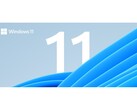Scientists seem unconvinced about Microsoft's bold claims in Quantum computing. The Redmond technology giant recently unveiled Majorana 1, a quantum processor based on a "Topological Core architecture," stamped with a bold claim of it being the first topological quantum bit (qubit).
Microsoft said it could theoretically power future technology with up to a million qubits. Researchers, however, seem unconvinced. The Majorana particles have proven extremely elusive to capture and were first theorized in 1937.
The company's claim that it not only managed to detect the particle but found a way to put it on a chip hasn't sat well with the scientific community. They say Microsoft's paper on the topic excludes key details, and given the company's past history of retracting a 2018 paper on the matter, have cast a shadow of doubt over Microsoft's claims.
"This is a piece of alleged technology that is based on basic physics that has not been established. So this is a pretty big problem," Sergey Frolov, professor of physics and astronomy at the University of Pittsburgh, told The Register.
Frolov said the announcement was so "dramatic" that it had people thinking it might be "a fraudulent project." Winfried Hensinger, a physicist at the University of Sussex, told Physics Magazine there is no proof for "topological qubits" in Microsoft's new paper.
He argued that Microsoft's press release makes it seem like they have discovered the particle when there is no proof in the paper.
"You shouldn’t make claims that are not supported by a peer-reviewed publication,” said Hensinger.
Microsoft's Chetan Nayak, leader of the Azure Quantum team, told Physics Magazine that the evidence of the qubit particle was collected during submission in March 2024. Nayak said he will present more conclusive research at the Global Physics Summit in California, scheduled for March 16.
In a statement shared with The Register, a Microsoft spokesperson said, "There is a lot of science to explain when it comes to quantum computing, and in the coming weeks and months, we look forward to sharing our results along with additional data behind the science that is turning our 20 plus year vision for quantum computing into a tangible reality."













